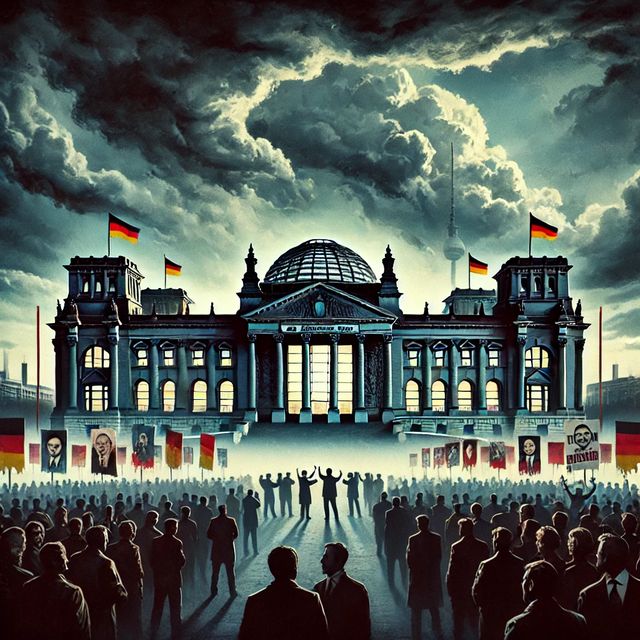
A Long Time Ago
I was born in Germany into a poor family, where financial struggle was a constant reality. I was pressured to leave school at 17 to earn money, working tirelessly at multiple jobs. Despite my efforts, high taxes and stagnant career opportunities made it impossible to get ahead. I took out loans, one after another, and by the age of 20, I was trapped in 35,000 Euros of debt. Realizing that I had no future in Germany, I made the painful decision to leave.
Fifteen years later, I have built a stable life elsewhere. I earned a degree in engineering, own a home, have savings, and can support my family back in Germany. But even if I wanted to return, I would not. The system that pushed me out has not improved, it has only become more entrenched.
Germany’s political system is designed to maintain the status quo. Elections create the illusion of choice, but no matter which party wins, the outcome remains the same. The established parties rely on predictable tactics, promising reforms, mobilizing voter bases with emotional rhetoric, and then forming coalitions that ultimately lead to no real change.
Elections
Every election cycle, political parties present themselves as being in stark opposition, some leaning right, others left. Yet, when the dust settles, they work together to maintain the same policies that have kept Germany in a state of stagnation for decades. The system does not encourage real debate or fresh ideas; instead, it thrives on division, making sure people focus on ideological battles rather than questioning the core structure of governance.
One of the most effective ways these parties maintain power is by suppressing alternative viewpoints. Those who challenge the status quo, whether through political activism, new parties, or independent movements, are quickly marginalized. The mainstream narrative is controlled through media influence and political alliances, ensuring that opposing voices are discredited rather than engaged in meaningful discussion. Instead of responding to criticism with better policies, politicians discredit dissenting opinions by labeling them extreme, conspiracy driven, or out of touch with reality.
Germany lacks true democratic participation because the political system does not allow the people to decide on major issues themselves. Unlike other countries that have successfully implemented referendums, Germany’s leadership refuses to trust its citizens with direct decision making power. Instead, crucial policies are decided behind closed doors by political elites who act in their own interests rather than those of the people they claim to represent.
This lack of accountability is one of the reasons I do not see myself returning to Germany. It is not just about taxes or the cost of living, it is about a political structure that refuses to evolve. Real progress would mean introducing referendums and direct democratic tools that allow citizens to vote on major policies instead of relying on politicians who have mastered the art of manipulation.
Germany is not suffering from a lack of good ideas. It is suffering from a system that actively prevents those ideas from reaching the people. Until that changes, elections will continue to be a predictable cycle of empty promises, coalition agreements, and policies that serve the same political class rather than the citizens who deserve real representation.
This is just my current opinion observation, I'm not leaning to any particular party.
Picture Source: AI
I enjoyed reading your text while battling to understand where does it fit in the realm of freewriting.
Running away may not be the best of choices, for bad men thrive in the silence and absence of the good ones.
If you have a definite idea of what displeases you, you should obviously keep on writting about that.
Silence is never our friend, nor is neutrality the best of stands.
I hope I get to read more from you.
Cheers,
Pedro
Downvoting a post can decrease pending rewards and make it less visible. Common reasons:
Submit